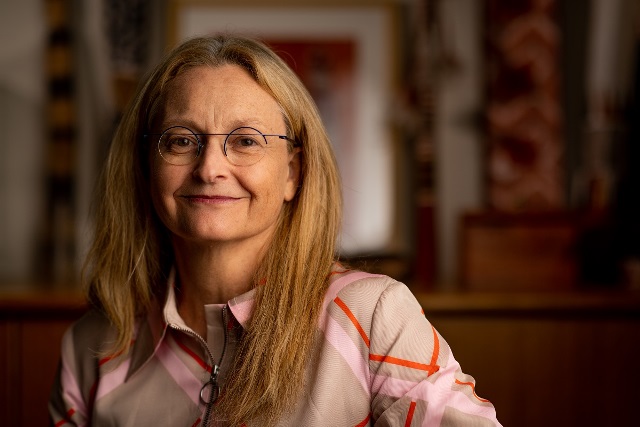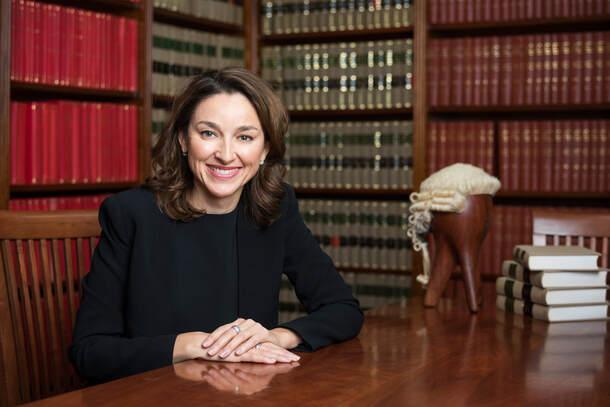What to expect during the inquest
The information below is a guide for family and community members about the coronial inquest into Kumanjayi Walker's death.
Find out when and where the inquest will be.
Why it's happening
At an inquest, the coroner’s job is to work out how someone died.
They do this by:
- listening to people telling their stories
- reading documents and looking at other evidence, like videos and pictures.
The inquest for Kumanjayi Walker is happening to:
- find out how he died
- try to make sure that in the future, people don’t die in the same way again.
Who's involved
Coroner
The person in charge of the inquest is called the coroner. The coroner's name is Elisabeth Armitage.
The coroner is neutral, like an umpire. She isn't on anyone's side. Her job is to listen to all the evidence and decide what happened in a fair and independent way.
Before and during the inquest, the coroner will make sure enough evidence is heard to get the full story.
She can also decide how that evidence can be shared with her so everyone who needs to share their story can do so safely.
Judge Elisabeth Armitage
Judge Elisabeth Armitage is originally from Sydney and studied at the Universities of Sydney and New South Wales (NSW).
Having worked in private practice and at the NSW Office of the Director of Public Prosecutions (ODPP), Judge Armitage moved with her family to the Northern Territory 20 years ago and has since made Darwin her home.
Judge Armitage was employed in the NT ODPP for 10 years, initially in management positions and later as a senior crown prosecutor.
Judge Armitage then enjoyed 2 years at the private bar, regularly acting as counsel assisting in inquests in the NT, and in trials as both prosecutor and defence counsel.
She was appointed as a magistrate of the local court in 2013 and was appointed acting Territory coroner in April 2022 when the former Territory coroner, Mr Greg Cavanagh, announced his retirement.
Counsel assisting
The coroner is helped by lawyers called the 'counsel assisting'. Their names are Peggy Dwyer and Patrick (Paddy) Coleridge.
Peggy and Patrick are assisted by their solicitor, Maria Walz.
Like the coroner, counsel assisting are neutral. They aren't on anyone's side.
Their job is to:
- work out who wants to tell their story to the coroner
- ask most of the questions of witnesses at the inquest
- make submissions to the coroner about:
- what happened and
- what recommendations should be made.
An important part of counsel assisting's job is to talk to people in the community, and all of the lawyers for other parties, to encourage them to work together.
Peggy Dwyer
Dr Peggy Dwyer is a barrister at Forbes Chambers in Sydney and practises primarily in criminal law, regulatory law, inquests and commissions of inquiry.
She has appeared many times as counsel assisting the coroner, or for interested parties, in the Northern Territory and New South Wales (NSW).
Before coming to the bar, Peggy was an associate to his Hon Justice Michael Kirby AC CMG in the High Court of Australia, and then completed a doctorate in Edinburgh, before returning to work in Australia.
During her time as a solicitor, Peggy was a senior lawyer at the Aboriginal Legal Service in NSW and the NT, and a solicitor advocate at the Crown Solicitors Office in NSW.
As well as her legal work, Peggy is the chair of Weave, Youth and Community Service and a Director of the Gotcha4Life Foundation.
Patrick Coleridge
Patrick is a barrister at the Victorian Bar. He practises broadly in public law, criminal law, torts, competition and consumer law, regulatory matters and inquiries.
Before coming to the bar, Patrick was:
- an associate to the Hon Justice Nettle AC in the High Court of Australia
- a senior lawyer and manager of the Appeals Practice at the North Australian Aboriginal Justice Agency (NAAJA)
- associate to Justice T Forrest in the Supreme Court of Victoria.
Patrick holds a Bachelor of Arts and a Juris Doctor (with first-class honours) from the University of Melbourne.
Maria Walz
Maria Walz is a very experienced solicitor, and an accredited specialist in criminal law. After completing her studies at the University of Newcastle, Maria was tipstaff to Justice Graham Barr of the Supreme Court of NSW, then the criminal list judge of that court.
For many years, Maria worked for Legal Aid NSW, before returning to private practice as a sole practitioner, practising in criminal and coronial law.
Maria specialises in serious indictable and appellate matters, instructing counsel in district and supreme court trials and sentences, and appeals to the:
- Supreme Court of NSW
- Court of Criminal Appeal
- Court of Appeal
- High Court of Australia.
Parties and their lawyers
The parties are people or groups or organisations who are allowed to question witnesses, or make submissions to the coroner at the inquest, through their lawyers.
They are allowed to do this because:
- they might have seen or heard what happened around the time of Kumanjayi’s death
- they might have special knowledge that is important to help the coroner understand
his death or - they might have good ideas about how things should change to stop deaths, like Kumanjayi’s, from happening in the future.
The parties represented during this inquest are:
- the Brown family (family of Kumanjayi)
- the Lane, Walker and Robertson families (family of Kumanjayi)
- the Parumpurru Committee (representing Yuendumu community members)
- the Northern Territory (NT) Police Force (including the Commissioner)
- the North Australian Aboriginal Justice Agency (NAAJA)
- the NT Department of Health
- Constable Zachary Rolfe
- the NT Police Association.
The parties each have their own lawyers.
During and after the inquest
To find out more about what will happen during and after the inquest, go to the Northern Territory Government website.
Give feedback about this page.
Share this page:
URL copied!



